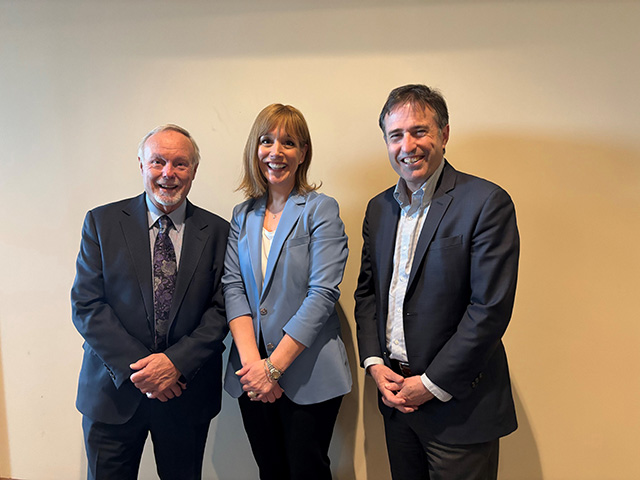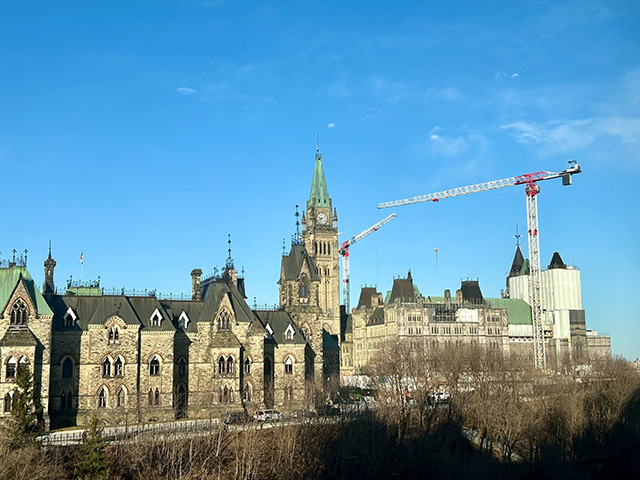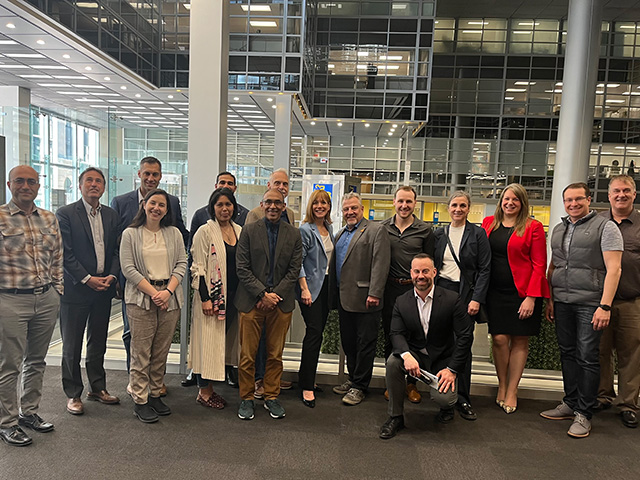Ottawa is much more than Parliament Hill. I spent a couple of days there last week, ahead of the federal budget, and had the chance to meet home builders, steelmakers, software entrepreneurs, a battery innovator, electric bus operator, a few AI players — and the granddaddy of Silicon Valley North, Sir Terry Matthews. It was a refreshing dive into Ottawa’s dynamic economy. Here are a few of the insights I took away:




Housing
- NIMBYism is the biggest threat to the federal housing plan. We all want more housing, just not in our backyard
- infrastructure, especially water and sewers, is critical, Nothing will be built without it
- all the excitement about prefab homes may need to be tempered by the reality that most need to be built far away from population centres, and that means getting factory workers to those places
Technology
- capital gains taxes (and indeed any more taxes on wealth) may be the biggest budget concern for techies. Every firm I met can put their company on an airplane tomorrow to the U.S.
- immigration remains Canada’s tech strength, along with colleges and universities. We need to continue to invest.
- political paralysis around important fiscal instruments like the Scientific Research & Experimental Development tax credit, and Sustainable Development Technology Canada, is costing Canadian innovators critical support
Clean tech
- venture capital is struggling, as interest rates remain higher for longer. Patient capital will be needed, including from pension funds
- policy uncertainty, including over electric vehicle mandates, has some early proponents and adopters concerned their markets may not accelerate fast enough
- procurement remains a big hurdle for many entrepreneurs, as they sometimes face a tougher market at home than abroad
Artificial intelligence
- the recent funding announcement for supercomputers is a big boost for the tech sector
- regulatory reach remains a concern for entrepreneurs who want principle-based guidelines but not excessive prescriptions
- how can we apply AI to some of our biggest challenges, like the energy transition and housing construction?
John Stackhouse is a nationally bestselling author and one of Canada’s leading voices on innovation and economic disruption. He is senior vice-president in the office of the CEO at Royal Bank of Canada, leading the organization’s research and thought leadership on economic, technological and social change. Previously, he was editor-in-chief of the Globe and Mail and editor of Report on Business. He is a senior fellow at the C.D. Howe Institute and the Munk School of Global Affairs and Public Policy. His latest book is Planet Canada: How Our Expats Are Shaping the Future, which explores the untapped resource of the millions of Canadians who don’t live here but exert their influence from afar.
This article is intended as general information only and is not to be relied upon as constituting legal, financial or other professional advice. The reader is solely liable for any use of the information contained in this document and Royal Bank of Canada (“RBC”) nor any of its affiliates nor any of their respective directors, officers, employees or agents shall be held responsible for any direct or indirect damages arising from the use of this document by the reader. A professional advisor should be consulted regarding your specific situation. Information presented is believed to be factual and up-to-date but we do not guarantee its accuracy and it should not be regarded as a complete analysis of the subjects discussed. All expressions of opinion reflect the judgment of the authors as of the date of publication and are subject to change. No endorsement of any third parties or their advice, opinions, information, products or services is expressly given or implied by Royal Bank of Canada or any of its affiliates. This document may contain forward-looking statements within the meaning of certain securities laws, which are subject to RBC’s caution regarding forward- looking statements. ESG (including climate) metrics, data and other information contained on this website are or may be based on assumptions, estimates and judgements. For cautionary statements relating to the information on this website, refer to the “Caution regarding forward-looking statements” and the “Important notice regarding this document” sections in our latest climate report or sustainability report, available at: https://www.rbc.com/community-social- impact/reporting-performance/index.html. Except as required by law, none of RBC nor any of its affiliates undertake to update any information in this document.


